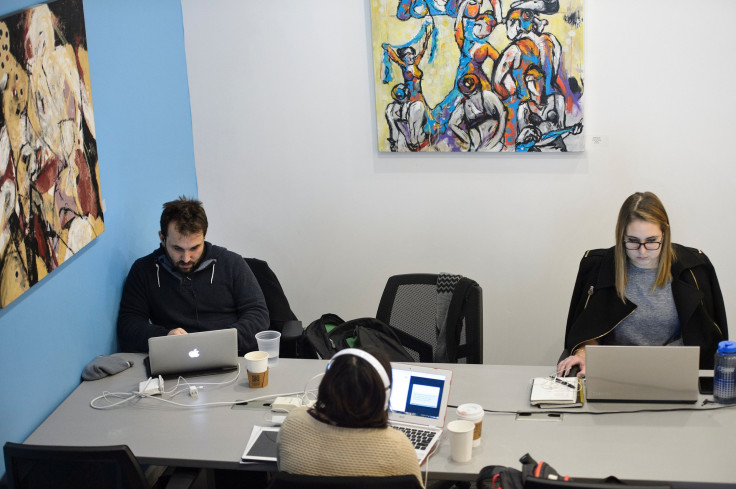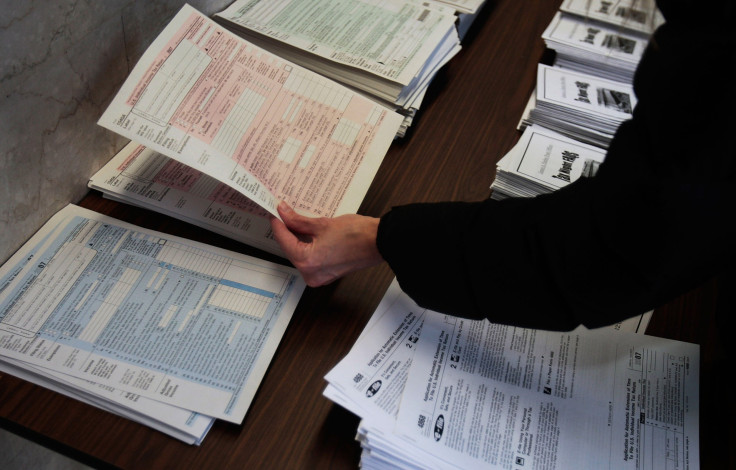Tax Deductions: Freelancers Beware The Three Most Abused Business Expenses When Filing Your Return

Taxes are like roller-coaster rides: It's always better when it's over.
Sure, some people love doing their taxes. But those people usually have very straightforward returns. For more than 60 million Americans, filing taxes means completing a one- or two-page form. With information from their W-2 and access to the internet, they can file for free online and expect to receive their IRS refund, averaging about $2,800, within 3 weeks.
For the 14.6 million Americans who are self-employed, 10 percent of the U.S. workforce according to the Pew Research Center, tax time is the opposite of neat and orderly. Amid the daily grind of getting work done and finding new business, freelancers have to find time to reconcile a year’s worth of cash flow and report it to the IRS. The task can easily take hours and sometimes days, especially since most people neglect to put an organized system in place to keep track of random expenses and inconsistent income. Tax time can be a dreaded wake-up call. Even more so if you owe money.
Of course, it is possible to get a tax refund when you're self-employed. But if you’re barely getting by, facing a tax bill could mean not being able to pay rent for a few months. The uncertainty can be paralyzing.
“Freelancing necessitates more of a saving behavior than a lot of people have,” said Russell Garofalo, the founder and president of Brass Tax, which helps “artists, freelancers and other nice people” with their taxes. “Most of us have that cultural mindset of employees: You can blow your net income from a paycheck, and you’ll have another one on its way.”
Recently, Garofalo met with a client who works in the television industry and earns $110,000 from both freelance income and W-2 income. She came in expecting to owe $5,000, and left getting about that amount as a refund instead.
“What a weird situation to come into a room and have that level of discrepancy between what you think might happen and what happens,” Garofalo said. “It’s really hard to guesstimate.”
Further complicating matters, freelancers tend to rely on each other for tax advice. Misinformation is common. According to Garofalo, three tax deductions are particularly abused: travel expenses, meals and entertainment, and the home office deduction. Here's what you need to know about those three deductions.
1. Travel Expenses
Travel can mean two separate things: transportation within your own city, or heading out of town on a business trip. Where most freelancers get tripped up is when they’re in their hometown, traveling to and from appointments. Driving from home to the office is not a business expense, but if you drive to another meeting or to pick up supplies from a store, you can deduct the mileage at a rate of 57.5 cents per mile for 2015. Taking a taxi or public transportation to one of these destinations is also deductible.
“The IRS is really cracking down on people who don’t keep good records. Keep a log in your car, or use an app like MileIQ as an easy way to track mileage expenses,” said Janet Berry-Johnson, a certified public accountant based in Scottsdale, Arizona.
Leaving town for a business trip is more straightforward, but record-keeping is still important. Apps and excel documents can be helpful for some, but Garofalo has found that using a tangible method to stay organized is easier for most of his clients. He advises freelancers to create an envelope for each category of business expense, from supplies to travel, and to store the receipts in the corresponding envelope throughout the year.
“If it’s a business thing in the moment, stick it in your wallet and then when your wallet is awkwardly full, stick it into the envelope, and that’s it,” he said. “At the end of the year, take out everything in each envelope and add it up.” Simple, but effective.
2. Meals and Entertainment
Contrary to popular belief, stopping at Starbucks for a coffee in the morning is not actually a business expense, even if you hold onto the receipt. “A lot of people try to go overboard with meals and entertainment expenses,” said Berry-Johnson. “In order to qualify, you need to be meeting with a client, or traveling for business,” she said. In general, only 50 percent of meal and entertainment expenses are deductible, according to the IRS.
Paying for meals or entertainment while networking can count as well, but only if there is a clear business purpose. Berry-Johnson recommends keeping notes on who you met with and what the discussion was about. “The IRS does tend to scrutinize meals and entertainment. It will be an audit flag,” she added.

3. Home Office Deduction
The home office deduction is another common audit flag, but that doesn’t mean you should be afraid to take it. “It can be pretty valuable if you qualify. You can also deduct a portion of your utilities, real estate taxes, repairs and cleaning,” Berry-Johnson said.
Most freelancers have some sort of office space in their homes, but not all home offices qualify for the tax deduction. Two main criteria must be met: it has to be your primary place of business, and the office area has to be regularly and exclusively used for work. Even if it’s just the square footage around your desk, if you can prove those two points, then it’s worth claiming.
When a deduction isn’t black and white, it can help to work with a tax preparer. Accountants charged an average of $273 per return in 2015, according to the National Society of Accountants, although fees vary by region and complexity. Still, it can be worth the cost. “If people are making these calls on their own, it defaults to their personality,” Garofalo said. People who are conservative tend to miss out on legitimate expenses, he said, while more aggressive types can go too far with deductions. Paying a professional can also hold you accountable for filing sooner rather than later.
“The stress is the worst part of it,” Garofalo said. “Once it’s done. you’ll feel so much better. Future you thanks you.”

© Copyright IBTimes 2024. All rights reserved.











